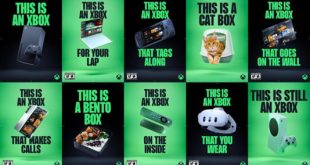Modern, internal drives are often described as delivering 6 gigabits of data transfer a second. That's the requirement for SATA III and the latest drives deliver. So how ironic is it that Asus would begin manufacturing mainboards where the EXTERNAL connection operates at 10 gigabits per second? KitGuru gets on board with the onboard Thunderbolt.
Checking out the back of the P8Z77-V Premium, you would be forgiven for missing the Thunderbolt connector altogether on your first pass.
The connector is small. No two ways about it, the connector is incredibly small. But it's also incredibly fast.

During Asus' latest secret briefings, the full force of this new connection was demonstrated beautifully – but with single drives and a ‘daisy chain' of products.
The Asus experts on hand, were quick to point out that while a single drive rocks existing data transfer expectations to their foundations, when you do attach multiple drives – each with its own power source – then that's when the true benefit of Intel/Apple's new super highway makes itself known.
Sure, with a photonic set up, the theoretical limit for transfer with Thunderbolt is 20Gb/s, but using copper, 10Gb/s can be sustained in a more affordable way.
There is a price premium for the new technology, which is around £50 – so it's easier to absorb in a high end design. For that reason, Asus has launched the first of its Thunderbolt-enabled boards at around £349 inc vat for the UK market. That's way more than a Sabretooth, but in line with a Rampage board.
Asus is rightfully proud of its collaboration with Intel on this product, which means that PR and Marketing Manager, Miodrag Relic, is able to say “This is the world's first Windows based Thunderbolt solution”. Being first in the world is a good thing. Impressive stuff.
Compared to interface solutions from the past, we can all remember when having the latest FireWire connection for Apple seemed quick – but you need to remember that 1394b only reached 800Mb/s.

Given how much bandwidth Thunderbolt has – and how many devices it will be compatible with – it's likely that we're looking at a focused successor to USB. Initially, the cost of adding the technology to a board is prohibitive, but that will come down over time – plus you need to consider how many devices might be paired up with this kind of interface. Then again, FireWire had a lot of technical advantages, but never made it past ‘Apple plus some specialist applications like video cameras'.
The daisy chaining ability of Thunderbolt presents some interesting options. While we have seen some hub-type technology for USB, the idea of being able to daisy chain a displayport monitor and 6 additional devices – at ultra-fast speeds – is appealing.
One thing is certain, Asus is stealing a march on the rest of the market. Apart from Lacie, there are very few companies out there with storage solutions that have been designed for Asus' new mainboard interface option.

KitGuru says: One of the more unusual concepts presented by Asus, was the idea of a Windows-based enthusiast PC kicking an Apple Mac's arse because it now comes with Thunderbolt. While KitGuru is certain that this is an exciting development in the world of interface technology, we're less sure that it is a winner-takes-all-tin-of-Popeye-spinach. Can't wait to see this interface on mainboards under £200.
Comment below or in the KitGuru forums.
 KitGuru KitGuru.net – Tech News | Hardware News | Hardware Reviews | IOS | Mobile | Gaming | Graphics Cards
KitGuru KitGuru.net – Tech News | Hardware News | Hardware Reviews | IOS | Mobile | Gaming | Graphics Cards


